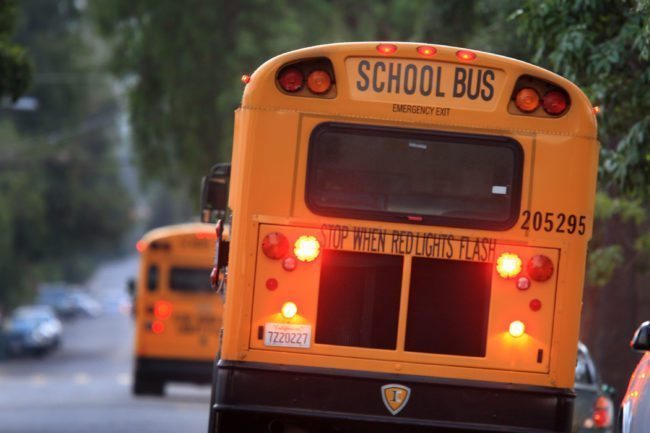Illinois House votes to teach LGBT history in schools

A school classroom. (Matt Cardy/Getty Images)
Illinois’ House of Representatives has reportedly voted for LGBT+ history to be taught in the state’s schools.
The state House approved the bill on Wednesday (March 13), which would require history books in Illinois to include “the role and contributions of lesbian, gay, bisexual, and transgender people in the history of this country and this State,” reports National Public Radio (NPR).
RT reports that the bill was passed by 60 votes to 42.
Supporters say the bill will reduce anti-LGBT bullying in Illinois schools.
Illinois bill for LGBT+ history in school requires governor sign-off
If measure becomes law, Illinois will be the third state in the US to require schools to teach LGBT+ history, after similar legislation was implemented in New Jersey earlier this year and California in 2016.
The bill is now waiting to be signed off by Democrat governor J. B. Pritzker.
It was passed by the Illinois senate in May 2018 with a vote of 34-18, reports The Hill.
“My brother was teaching history and a student asked whether the historical figure there was the subject of the lesson was gay. He answered with the truth.”
—Democrat representative Jennifer Gong-Gershowit
Democrat representative Jennifer Gong-Gershowit, a supporter of the plan, said her brother, who is a teacher, had been disciplined by his school for speaking about his sexuality.

Kluge originally called pupils by their surnames (David McNew/Getty Images)
“He was subjected to hate mail and called into the principal’s office to explain why he answered a student’s question honestly,” she told NPR.
“My brother was teaching history and a student asked whether the historical figure there was the subject of the lesson was gay. He answered with the truth.”
If approved, Illinois would be third US state to require schools to teach LGBT+ history
Opponents of the Illinois bill, however, argue that it is not necessary for schools to teach about the gender or sexuality of historical figures.
Tom Morrison, a Republican state representative, told NPR: “Here’s what parents in my district said, ‘How or why is a historical figures’ sexuality or gender self -identification even relevant?
“‘Especially when we’re talking about kindergarten and elementary school history.’”

